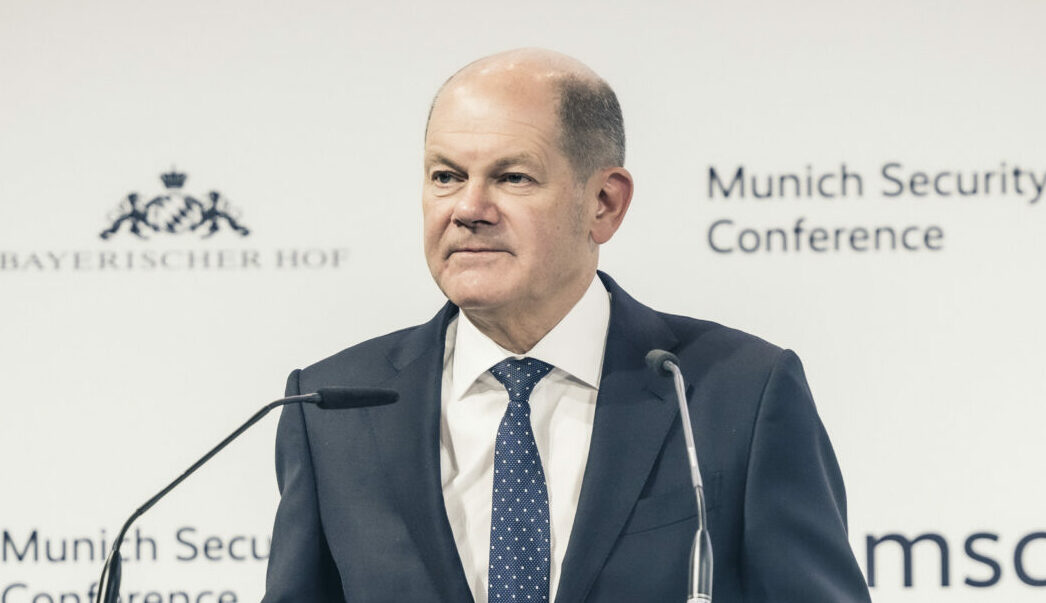Will the economy bury the German government?

What the latest data say about the German economy: the technical recession has been avoided, but the sluggishness remains. Thus turmoil emerges in the government majority
The German economy avoided recession. By the skin of their teeth, even if economists confirm that there is very little to rejoice about. The Federal Statistical Office reported that from January to March gross domestic product grew by 0.2% compared to the previous quarter. Analysts had expected mini-growth of just 0.1%.
TECHNICAL RECESSION AVOIDED
In the fourth quarter of 2023, Europe's largest economy had contracted by 0.5%. Two consecutive negative quarters would have decreed a technical recession.
According to researchers from the Statistics Office, growth at the beginning of the year was driven by the increase in investments in construction and exports, while a chapter of growth which in the months following the end of the pandemic had driven the recovery: “Private consumer spending, on the other hand, decreased,” reads the note. Inflation, energy costs and the climate of pessimism that has enveloped the German economy have depressed consumers.
HOPES FOR DEPRESSED PRIVATE CONSUMPTION
But perhaps even here we can see signs of optimism for the immediate future (also thanks to the arrival of the warm months with a greater propensity to spend on travel and catering). The hope of a recovery in consumption in Germany has in fact recently been fueled by surprisingly positive news from the retail trade: sales in March increased by 1.8% in real terms compared to the previous month. this is the fastest increase in the last two and a half years. “Hope is growing that spring and the approach of summer will further stimulate consumption,” Alexander Krüger, chief economist at Hauck Aufhäuser Lamp Privatbank, confirmed to the Handelsblatt.
THE BUNDESBANK KEEPS A LOW PROFILE
However, the Bundesbank does not yet expect a lasting recovery of the national economy. “The German economy has recovered somewhat, but a full acceleration is not yet assured,” we read in the current monthly report. The increase in financing costs and increased uncertainty about economic policy have slowed down business investment activity.
Demand for “Made in Germany” goods on both the domestic and international markets is still weak, observe analysts from the German central bank, and the negative trend in demand in residential construction has not yet stopped.
The federal government has raised its growth forecast for Europe's largest economy this year, but only slightly and expects an imperceptible increase of 0.2 to 0.3 percent.
THE CRITICISM OF THE IW ECONOMIC INSTITUTE OF COLOGNE
The Bundesbank's doubts are shared by other economists. Like Michael Hüther, director of the German Economic Institute IW in Cologne, who has recently been very critical of the SPD-Greens-FDP tripartite government. “The overall economic situation is unsatisfactory,” writes Hüther in the Handelsblatt, “the verdict is based on economic indicators which, despite a slight improvement this year, only promise a prolongation of the stagnation.”
For the economist of the think tank close to the business world, "the fact that expectations on the economic climate are currently better than the assessment of the situation speaks against Chancellor Olaf Scholz and his accusation that the economic elite defames Germany as a economic". The difficult situation manifests itself in economic data which, such as the price competitiveness index or cost indicators, have deteriorated significantly in recent times, says Hüther.
The negative opinion is also based on the challenges linked to the transition to climate neutrality, explains the director of IW, which requires significant corporate investments that will not arrive quickly. And he adds: “Non-governmental gross fixed investments reached only 19.3% of gross domestic product in 2023, the last time the rate exceeded 20% was in 2000. The problem, however, is not given by the fact that German companies invest massively abroad. More notable is the decline in the inflow of foreign direct investment since 2020. This reflects worrying signs for the German industrial location, especially given the high subsidies.”
THE FDP'S CHALLENGE ON THE ECONOMY
The Liberal Democrats, in a serious crisis of consensus, are trying to enter the debate on the crisis to mark a difference with their allies and strengthen their own programmatic profile, also in view of very difficult elections (European elections in June and in three eastern Länder in September). A 12-point proposal came from the congress over the weekend to accelerate the economic turnaround which, among other things, calls for more severe sanctions for those who cheat on citizens' income, the end of retirement at 63 and the abolition of energy subsidies renewable.
These are points not present in the government program drawn up in 2021, when the "traffic light" coalition was born, but for the Liberal Democrats they must now be incorporated into the government's next action to give substance to the proclamations of relaunching the economy. Dosing the flow of public assistance more carefully to allocate money to innovation and tax relief for businesses is – according to the FDP – the main path. Citizenship income, pensions and subsidies for renewables are, however, indispensable cornerstones for social democrats and greens, the very reason for their presence in the government.
For this reason the controversy reignited furiously within the coalition, after a few weeks of truce. Scholz continues to downplay the concerns of the economic world, irritating industrialists and to some extent also the FDP. And what initially appeared as a ploy that was more electoral than political risks getting out of control of its protagonists. The inevitable electoral conflict in the coming months will not help the work of the "fire brigade".
This is a machine translation from Italian language of a post published on Start Magazine at the URL https://www.startmag.it/mondo/economia-germania-recessione-tecnica-evitata/ on Tue, 30 Apr 2024 12:45:41 +0000.
